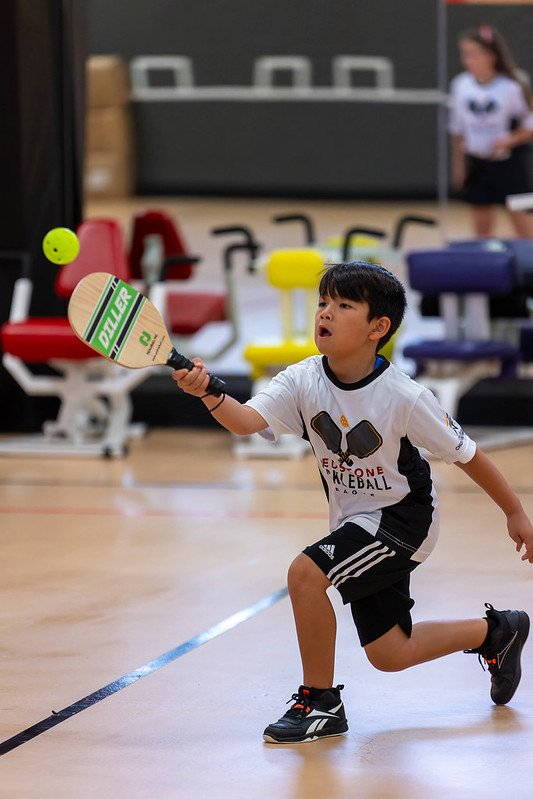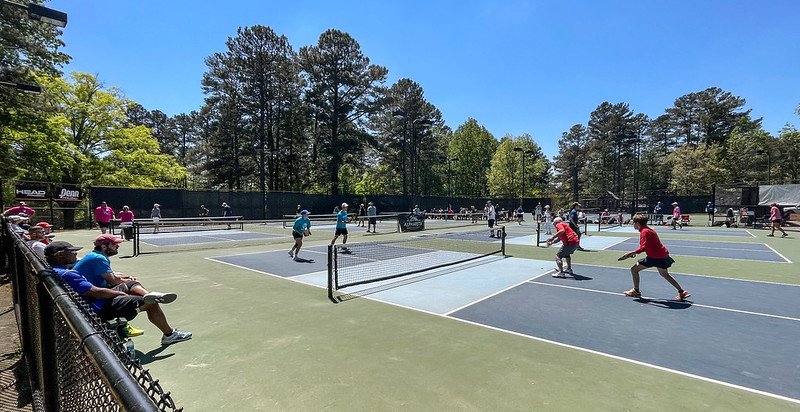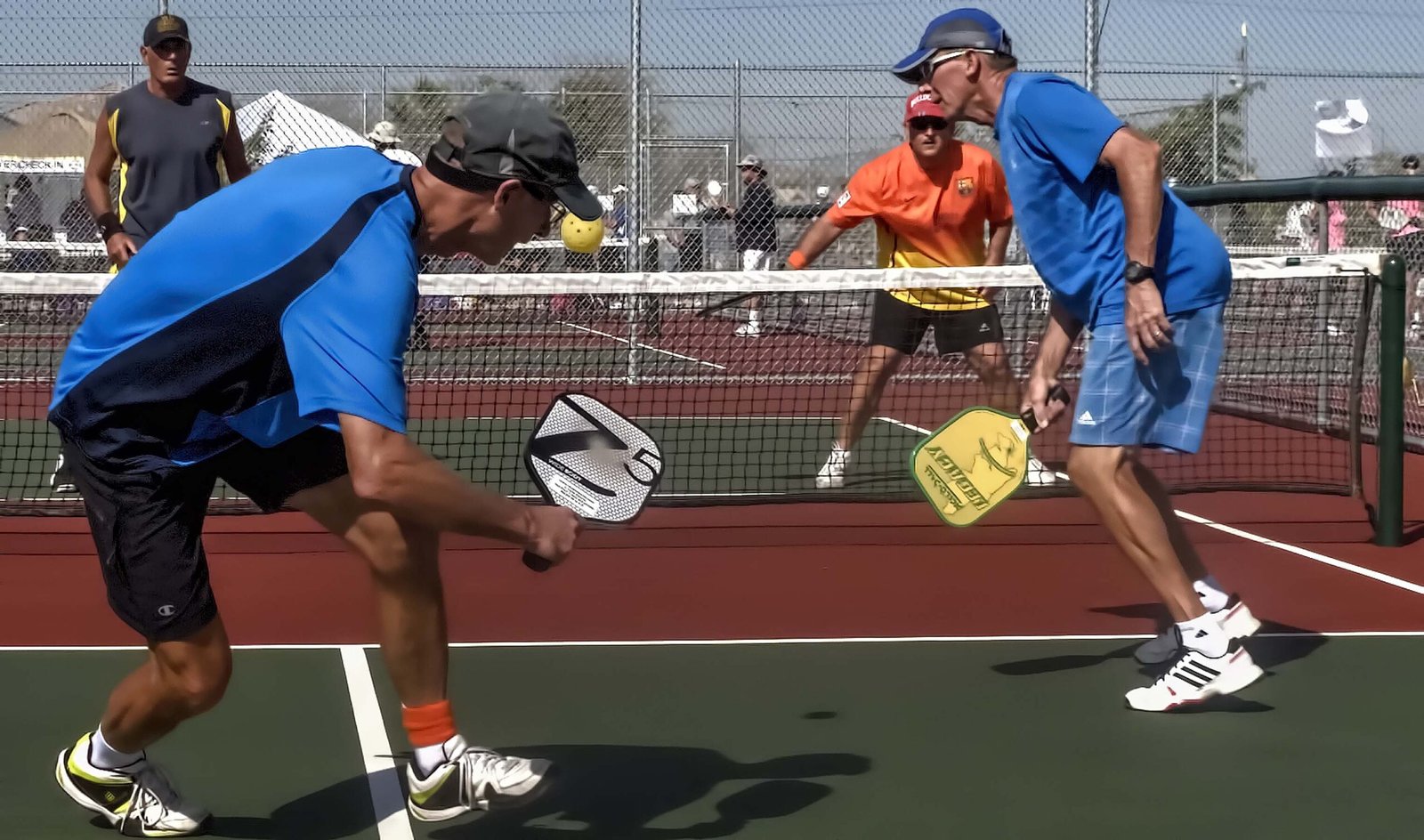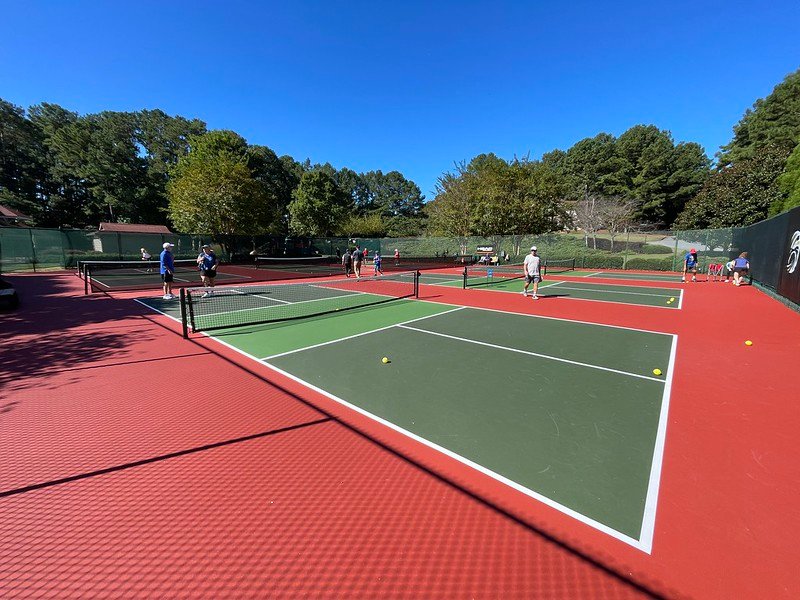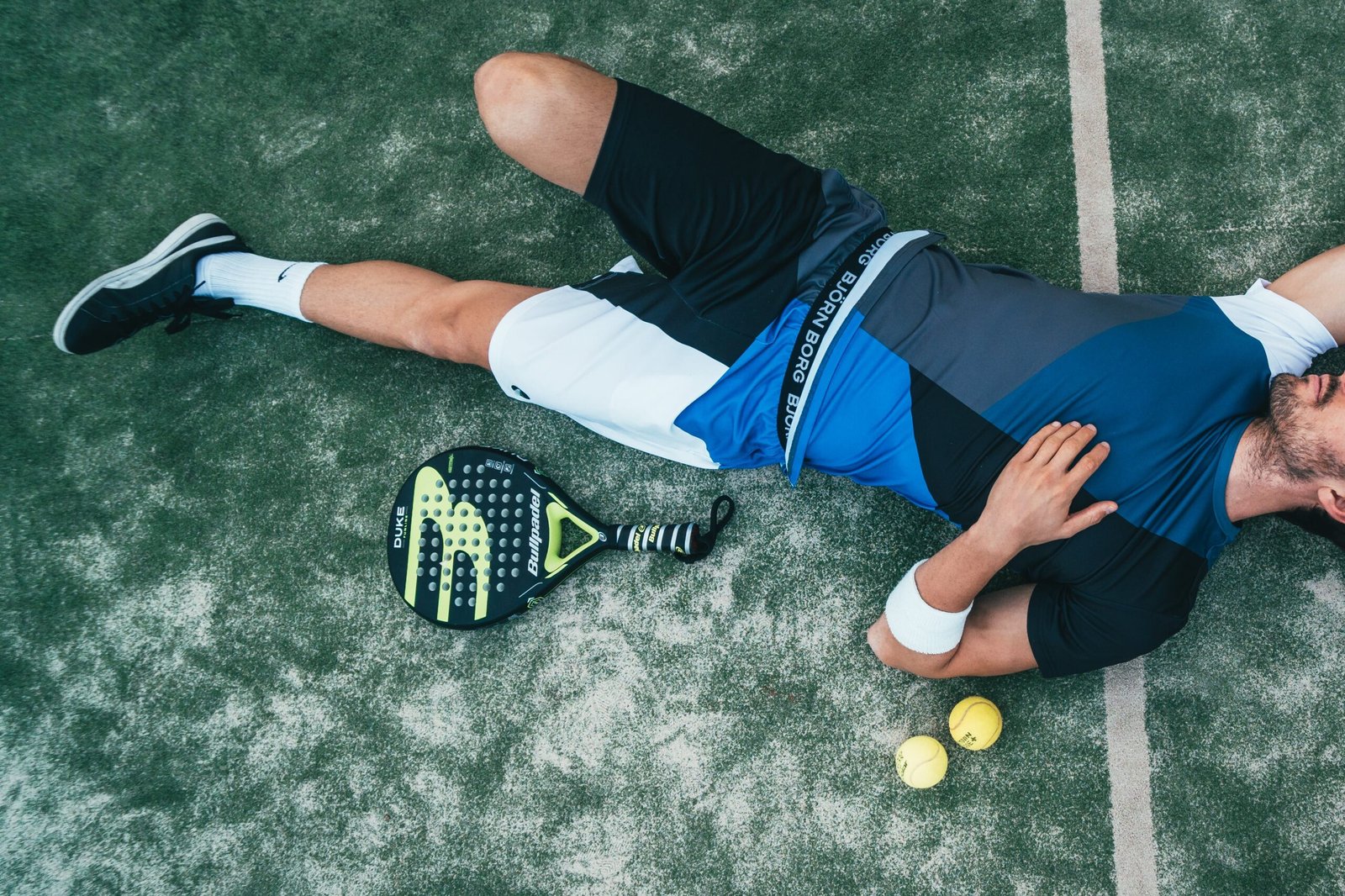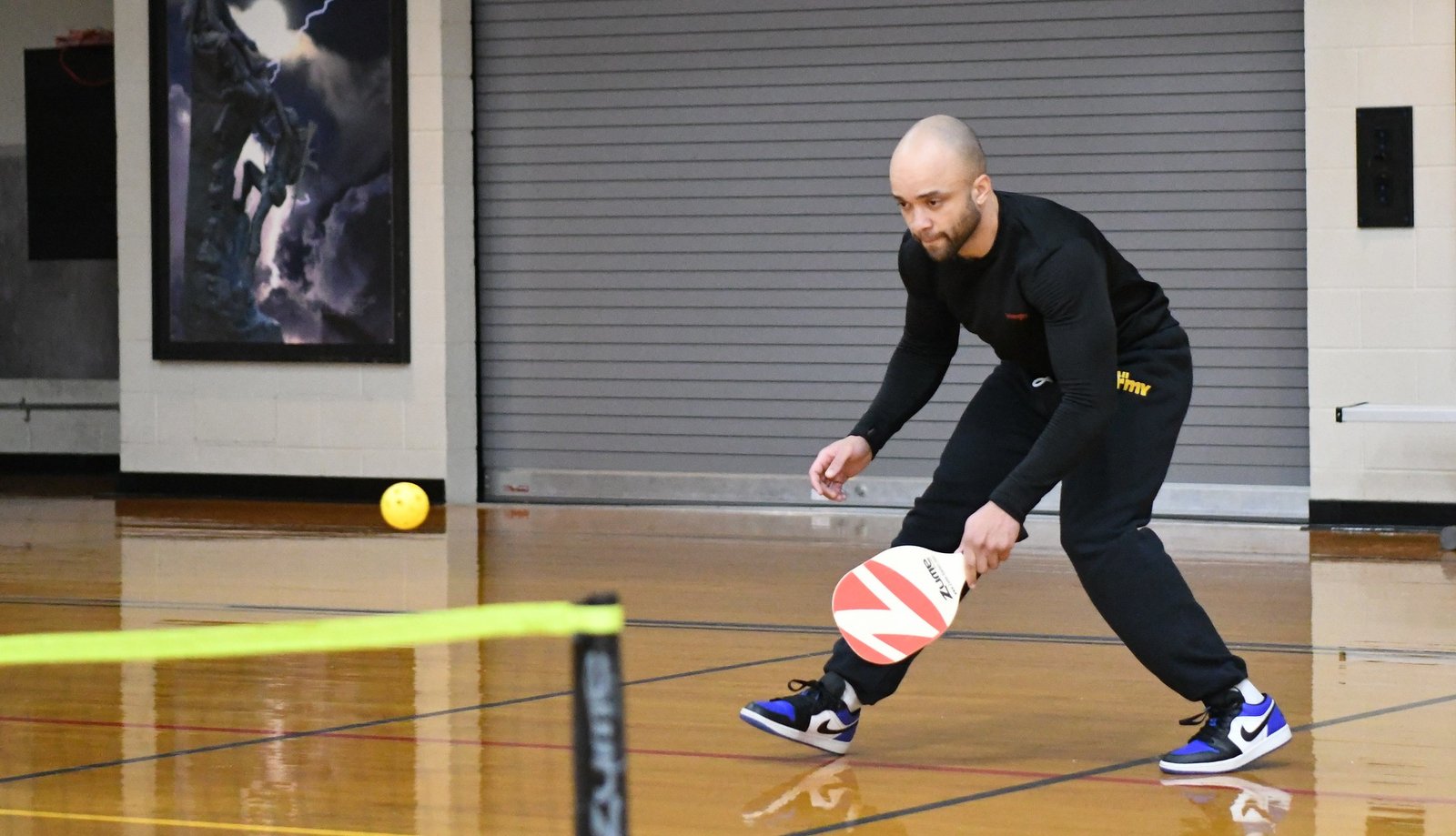Welcome to the intriguing world of pickleball, a dynamic racquet sport that has captured the hearts of enthusiasts around the globe. As the popularity of pickleball continues to soar, a fundamental question arises: Is pickleball a sport or a hobby? This inquiry delves into the essence of pickleball, exploring the nuances that differentiate it from a casual pastime to a structured and competitive athletic pursuit.
Pickleball, often described as a fusion of tennis, badminton, and table tennis, has emerged as more than just a recreational activity. Its unique blend of strategy, skill, and fast-paced action has transformed it into a bona fide sport. To unravel the layers of pickleball’s identity, we embark on a journey through its structured rules, competitive tournaments, and the commitment to skill development that characterizes it as a sport.
One cannot overlook the flourishing tournament scene that has become synonymous with pickleball. From local events to international championships, players engage in fierce competition, showcasing their prowess and determination. The existence of competitive leagues and organizations, such as the USA Pickleball Association (USAPA) and the International Federation of Pickleball (IFP), further solidifies pickleball’s status as a sport governed by standardized rules and regulations.
However, amidst the structured and competitive aspects, there is a facet of pickleball that draws in individuals for pure enjoyment and social interaction. Many players embrace pickleball as a hobby, relishing the camaraderie and recreational play it offers. This duality prompts us to consider the varied demographics involved in pickleball, from serious competitors to those seeking leisure and community engagement.
In this exploration of pickleball’s nature, we navigate through the blurred lines between sport and hobby, acknowledging the sport’s inclusivity while highlighting its competitive spirit.
Table of Contents
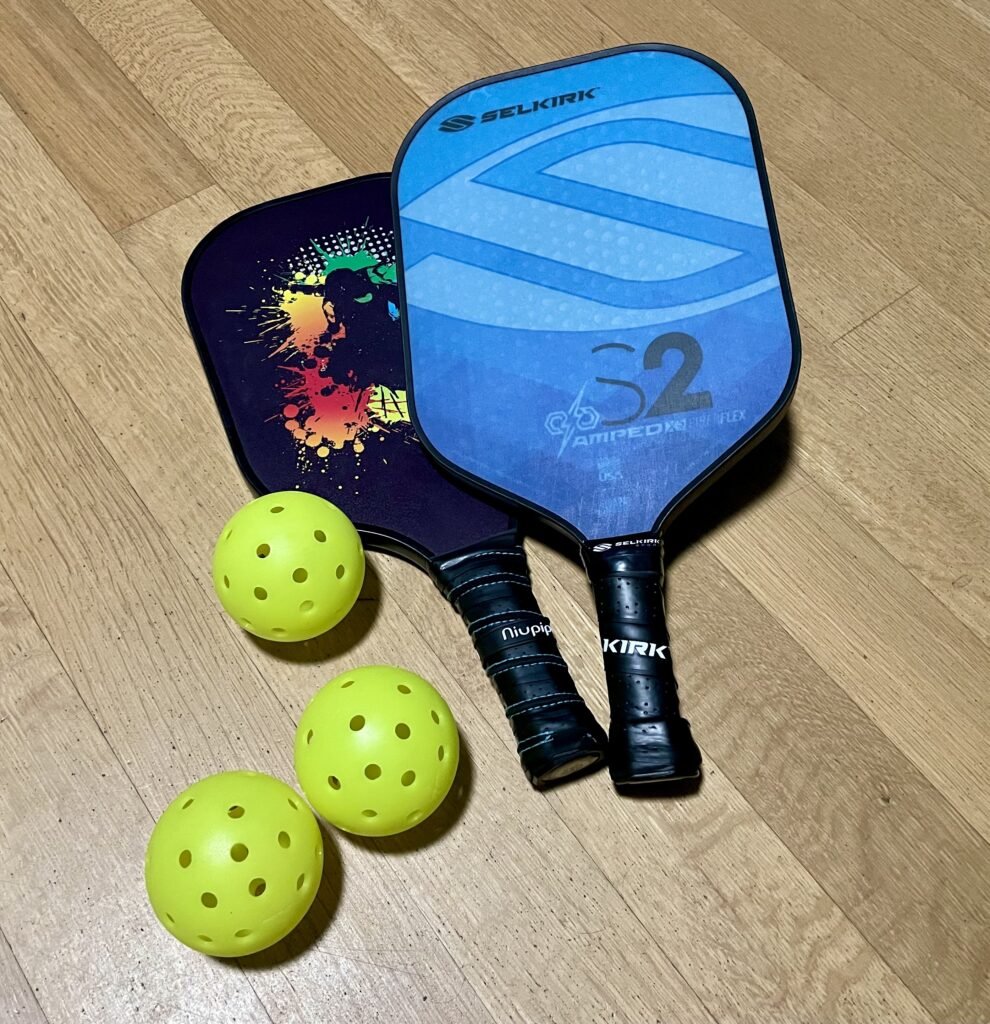
Why do they call it pickleball?
The origin of the name “pickleball” has an interesting anecdote that adds a touch of whimsy to the history of this unique racquet sport. In the mid-1960s, Joel Pritchard, a congressman from Washington state, along with his friend Bill Bell, and Pritchard’s family were seeking a way to entertain themselves on a summer afternoon. The story goes that they attempted to play badminton but couldn’t find all the necessary equipment. Undeterred, they improvised by using ping pong paddles and a perforated plastic ball instead.
As the game evolved, the Pritchard family introduced it to their neighbor, Barney McCallum, who was a successful businessman and inventor. McCallum saw the potential in the game and collaborated with Pritchard to formalize its rules and equipment. The game quickly gained popularity in the Pacific Northwest and beyond.
Now, let’s address the curious name. There are a couple of theories about how “pickleball” got its name. According to one version, the Pritchard family had a dog named Pickles, who would chase after the balls during their matches. As a result, they reportedly began calling the game “pickleball” in reference to their furry companion.
However, the more widely accepted explanation, supported by Barney McCallum, suggests that the name actually comes from the term “pickle boat.” In crew (rowing) terms, a pickle boat is a boat comprised of leftover oarsmen or a mix of oarsmen from different boats. McCallum thought that the game he helped create had elements borrowed from various sports like badminton, tennis, and ping pong, just like a “pickle boat” in rowing had a mix of rowers. Hence, the name “pickleball” stuck, reflecting the eclectic and inclusive nature of the sport.
Regardless of the origin, the name “pickleball” has become synonymous with a sport that seamlessly blends competition, camaraderie, and creativity on the court.
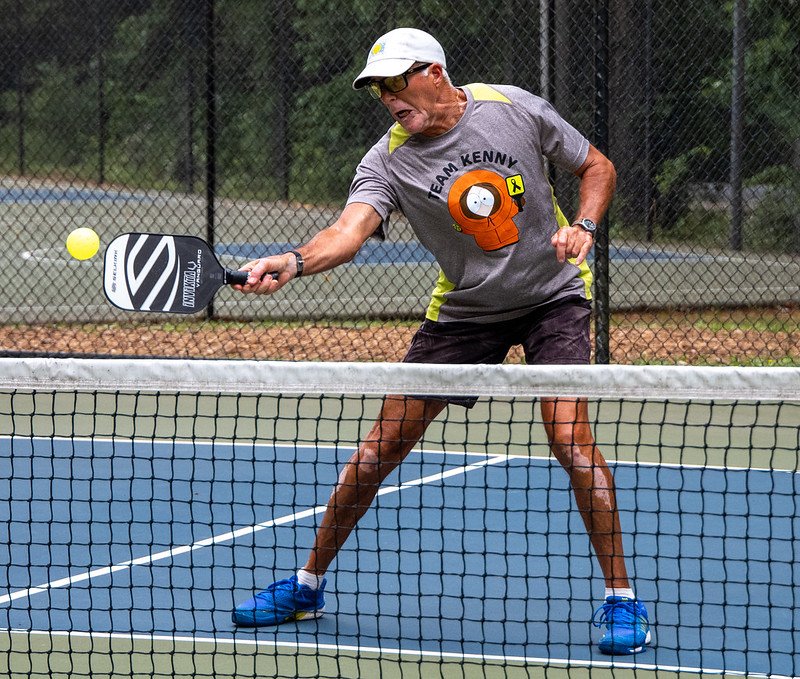
Is pickleball a lifelong sport?
Pickleball stands out as a lifelong sport, capturing the hearts of players across generations and fostering a sense of community that transcends age barriers. Its adaptability, accessibility, and social nature contribute to its status as a sport that individuals can engage in throughout their lives, making it a popular choice for players of all ages.
One key factor that solidifies pickleball as a lifelong sport is its adaptability to various skill levels and physical conditions. Whether you’re a beginner picking up a paddle for the first time or a seasoned player honing advanced techniques, pickleball accommodates a wide range of skill levels. The versatility of the game allows players to continually challenge themselves and experience growth, making it an appealing choice for individuals seeking a lifelong athletic pursuit.
The accessibility of pickleball is another significant aspect contributing to its status as a lifelong sport. Unlike some high-impact sports that may become physically challenging as individuals age, pickleball is relatively low-impact, placing less strain on joints. This characteristic makes it suitable for individuals of different fitness levels and ages, promoting longevity in participation.
Pickleball’s social nature plays a pivotal role in making it a lifelong sport. The sport’s emphasis on doubles play fosters teamwork and camaraderie on the court, creating a supportive community that extends beyond the game itself. The social aspect becomes particularly crucial as individuals age, providing opportunities for connection, recreation, and a sense of belonging.
Furthermore, pickleball’s widespread popularity among seniors has led to the establishment of senior leagues and tournaments, further reinforcing its reputation as a lifelong sport. The sport’s inclusivity and the welcoming atmosphere of pickleball communities make it a compelling choice for those seeking not only physical activity but also social engagement as they progress through different stages of life.
In conclusion, pickleball’s adaptability, accessibility, and social dynamics position it as a sport that individuals can enjoy throughout their lives. Its enduring appeal across generations highlights pickleball as not just a game but a lifelong pursuit that promotes both physical activity and a sense of community.
Is pickleball a sport or a hobby?
Pickleball is a unique racquet sport that combines elements of tennis, badminton, and table tennis. It has gained significant popularity in recent years, attracting players of various ages and skill levels. While some may perceive it as a hobby, pickleball is undeniably a sport with distinct characteristics and competitive elements.
Key Characteristics of Pickleball as a Sport:

- Structured Rules and Regulations
Pickleball, a dynamic racquet sport, distinguishes itself as a competitive endeavor through its meticulous set of rules and regulations. The framework governing gameplay is carefully defined by authoritative bodies, with organizations like the USA Pickleball Association (USAPA) and the International Federation of Pickleball (IFP) playing pivotal roles in establishing and maintaining these standards.
The comprehensive ruleset is a testament to the sport’s commitment to fair play and consistency. Competitive sports inherently rely on a structured framework to ensure a level playing field, and pickleball is no exception. The rules encompass various aspects of the game, ranging from court dimensions and scoring procedures to proper service techniques and player conduct. Adherence to these regulations not only maintains the integrity of the sport but also contributes to the development of skills and strategic thinking among players.
The USA Pickleball Association, as a leading governing body, continually refines and updates the rules to keep pace with the sport’s evolution. Collaboration with international entities such as the International Federation of Pickleball ensures a global standardization that enhances the sport’s credibility and facilitates international competitions.
The establishment of such robust rules and regulations serves multiple purposes. Firstly, it provides a clear framework for players, coaches, and officials, promoting a shared understanding of the game’s dynamics. Secondly, it guarantees a fair and competitive environment where success is determined by skill, strategy, and sportsmanship rather than ambiguity or inconsistency. In essence, pickleball’s commitment to a well-defined ruleset not only solidifies its status as a competitive sport but also contributes to the growth and sustainability of the game on a global scale.
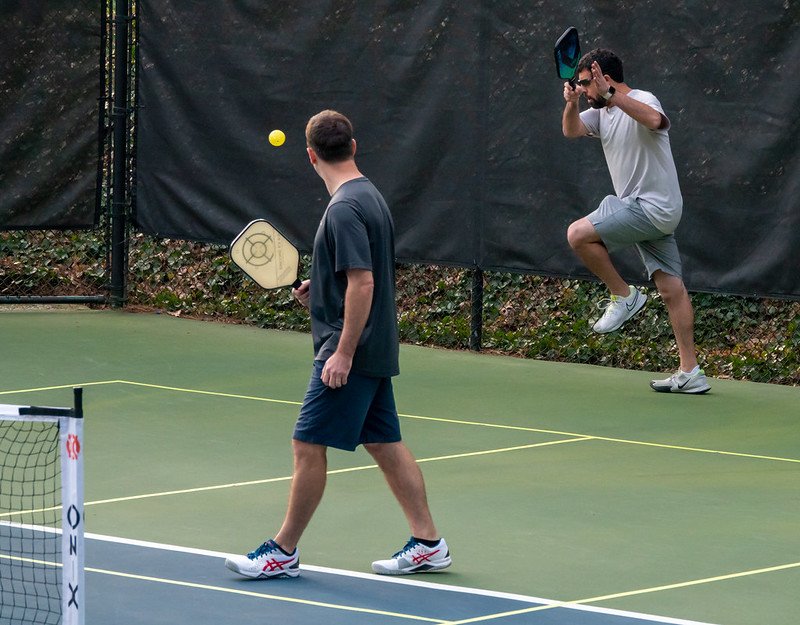
- Competitive Tournaments
Pickleball has firmly established itself in sports through its vibrant tournament scene, spanning local, regional, national, and international levels. This competitive landscape reflects the sport’s evolution from a recreational pastime to a fully-fledged athletic pursuit. The presence of these tournaments serves as a testament to pickleball’s legitimacy as a sport, offering players diverse platforms to demonstrate their skills, compete against peers, and aspire to achieve notable success.
Local pickleball tournaments act as foundational events, bringing together players from nearby communities to engage in spirited competition. These grassroots competitions not only serve as a proving ground for emerging talent but also foster a sense of camaraderie among participants.
As players progress in skill and ambition, regional tournaments become stepping stones toward higher levels of competition. These events attract participants from a broader geographical area, intensifying the level of play and providing a glimpse into the competitive spectrum of pickleball.
National tournaments represent the pinnacle of domestic competition, where top players from different regions converge to vie for prestigious titles. The heightened skill level and strategic play in these tournaments showcase the elite echelon of pickleball athleticism, further solidifying the sport’s status.
On the international stage, pickleball takes center stage with global tournaments that attract players from diverse cultures and backgrounds. This not only enhances the sport’s global appeal but also establishes pickleball as a cross-cultural phenomenon with a growing fan base worldwide.
In essence, the thriving tournament scene in pickleball serves as a hallmark of its classification as a sport. These organized events provide players with invaluable opportunities to showcase their abilities, engage in competitive play, and pursue coveted titles, solidifying pickleball’s standing in the world of organized sports.
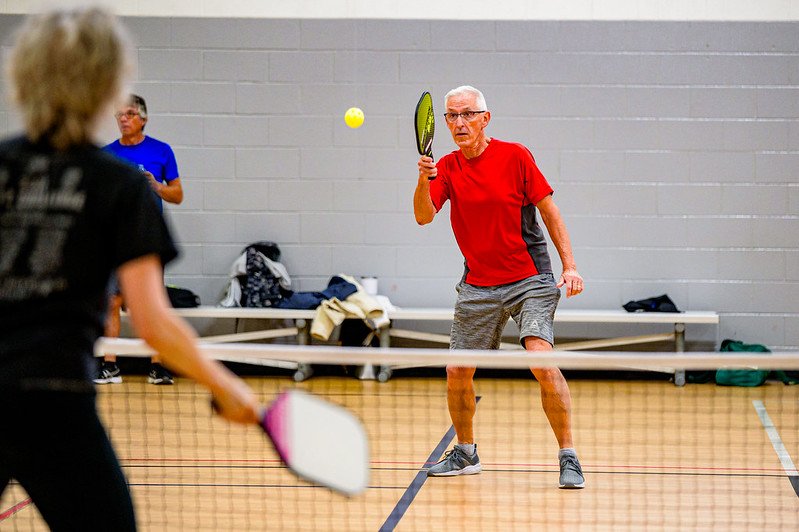
- Skill Development and Training
In sports, the pursuit of excellence is often marked by a dedication to skill development and rigorous training, and pickleball is no exception. Much like traditional sports, pickleball demands a commitment to honing one’s abilities through deliberate practice and continuous improvement.
Skill development in pickleball extends beyond casual play, as players actively engage in structured practice sessions to refine their techniques. From perfecting the intricacies of serves to master the delicate balance of dinks and smashes, players invest time and effort to elevate their game. This deliberate focus on skill enhancement is a hallmark of sportsmanship, distinguishing pickleball from a casual hobby where the emphasis might be more on leisure than on mastery.
Agility, a fundamental aspect of athleticism, is a key component in pickleball, and players recognize the importance of maintaining and enhancing their agility levels. Through agility drills and dynamic movement exercises, players strive to stay nimble on the court, precisely anticipating and reacting to opponents’ shots. The incorporation of agility training underscores the athletic nature of pickleball, aligning it with the structured approach found in sports rather than casual recreational activities.
Strategic thinking forms the cerebral dimension of pickleball, where players focus not only on physical prowess but also on mental acuity. Understanding opponents’ patterns, anticipating shots, and strategically positioning oneself on the court are elements that players consciously develop through training. This strategic aspect elevates pickleball beyond a mere pastime, emphasizing the mental engagement and tactical considerations inherent in sports.
The commitment to skill development and training in pickleball mirrors the disciplined approach seen in established sports. The deliberate pursuit of excellence through structured practice sessions underscores pickleball’s identity as a sport, highlighting the dedication of players to elevate their game and compete at increasingly higher levels.
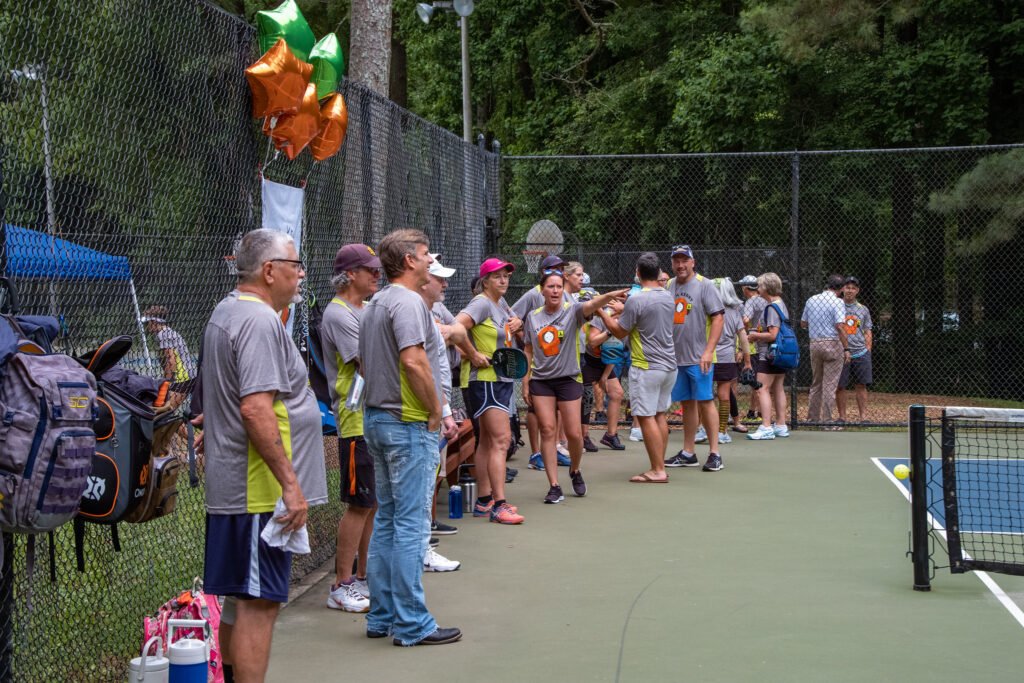
- Structured Leagues and Organizations
Pickleball’s evolution from a casual pastime to a recognized sport is prominently underscored by the establishment of robust leagues and organizations dedicated to its development. Unlike hobbies, which often lack a centralized governing structure, pickleball boasts a network of entities that play pivotal roles in shaping the sport, organizing events, and maintaining standards.
The USA Pickleball Association (USAPA) stands as a cornerstone in the sport’s organizational framework. Functioning as the national governing body for pickleball in the United States, the USAPA is instrumental in overseeing the growth of the sport. It formulates and refines rules, conducts referee training programs, and coordinates tournaments at various levels, ensuring a standardized and fair playing field for participants.
Internationally, the International Federation of Pickleball (IFP) plays a similar role on a global scale. By providing a platform for collaboration among nations, the IFP works towards establishing consistent standards and rules across different regions. This international coordination elevates pickleball beyond a mere leisure pursuit, placing it firmly within organized sports.
These governing bodies not only set the rules but also actively contribute to the sport’s development by promoting education and community engagement. They organize workshops, clinics, and outreach programs, fostering a culture of learning and skill enhancement among players. The presence of such organized efforts distinguishes pickleball from mere hobbies, as it reflects a commitment to the structured growth and advancement of the sport.
The existence and active involvement of leagues and organizations like the USAPA and IFP highlight pickleball’s transition from a recreational activity to a bona fide sport. Their role in overseeing the sport’s development, organizing events, and setting standards elevates pickleball to a level of legitimacy commonly associated with organized sports rather than casual hobbies.
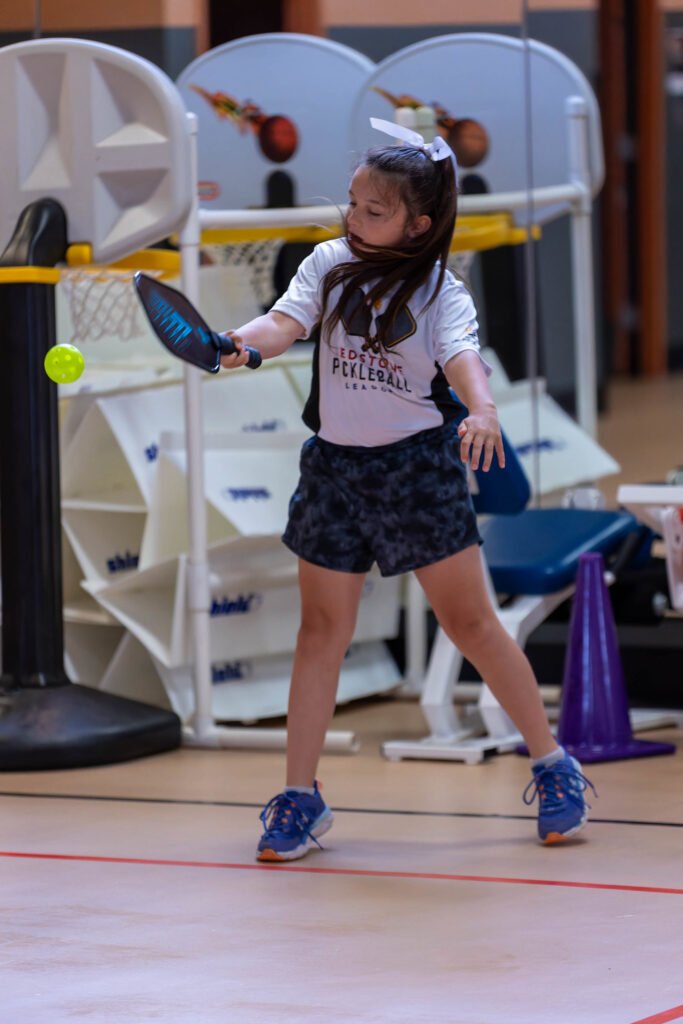
- Competitive Spirit
The heartbeat of pickleball pulses with a genuine competitive spirit, setting it apart from activities primarily pursued for leisure. Within the confines of the pickleball court, players are immersed in a dynamic environment where the pursuit of victory is not just a desire but an inherent part of the game’s essence. This competitive ethos pervades every match, tournament, and quest for accolades, forging a distinctive identity for pickleball as a sport rather than a mere leisurely pastime.
In pickleball, the competitive spirit is palpable, driving players to hone their skills, strategize with precision, and give their utmost effort on the court. Winning becomes a tangible goal, and the pursuit of victory adds an electrifying dimension to the game. Whether engaging in singles or doubles play, players enter the arena with a determination to outmaneuver opponents, showcasing their agility, finesse, and strategic insight.
Tournaments serve as the battlegrounds where this competitive spirit reaches its zenith. From local competitions to prestigious national and international events, players vie for supremacy, seeking to etch their names into the annals of pickleball history. The thrill of competition intensifies as players compete not only for personal triumph but also for the prestige that comes with tournament victories and the coveted accolades that accompany them.
This competitive aspect of pickleball distinguishes it as a sport where the pursuit of excellence and the desire to emerge victorious are integral components. While pickleball undoubtedly offers recreational enjoyment and social interaction, its competitive spirit elevates it beyond casual hobbies, placing it firmly in the domain of organized sports where the pursuit of success on the court becomes a driving force for participants.
Considerations That May Lead to the Perception of Pickleball as a Hobby:
- Recreational Play
Pickleball, although embraced by many as a recreational pursuit and a source of leisurely enjoyment, maintains a distinct identity as a legitimate sport. The fact that individuals engage in pickleball for recreational purposes does not diminish its classification as a sport; instead, it adds to the sport’s versatility and broad appeal.
For a considerable number of participants, pickleball serves as a recreational outlet, providing a delightful and social avenue for physical activity. Its ease of learning and relatively low entry barrier make it accessible to individuals seeking a casual, enjoyable experience. The social aspect of pickleball, with its emphasis on doubles play and communal spirit, contributes to its popularity as a leisure activity.
However, the prevalence of recreational play does not negate the structured and competitive elements inherent in pickleball’s core. The existence of well-defined rules, official organizations such as the USA Pickleball Association (USAPA), and the organization of competitive tournaments all align with the characteristics of a sport. The sport’s governing bodies ensure standardization and fairness in gameplay, emphasizing the serious and competitive side of pickleball.
In essence, the coexistence of recreational play and competitive aspects within pickleball highlights its multifaceted nature. It accommodates both those seeking a laid-back, social experience and individuals with a hunger for competition and skill development. Thus, while many engage in pickleball for recreational purposes, this dimension enriches the overall landscape of the sport without diminishing its fundamental classification as a legitimate and structured athletic endeavor.

- Varied Player Demographics
Pickleball’s broad appeal lies in its ability to attract a diverse spectrum of players, ranging from casual enthusiasts seeking social interactions to competitive athletes hungry for victory. This inclusivity, far from diminishing its status as a sport, is a cornerstone of pickleball’s popularity.
The welcoming nature of pickleball is evident in its ability to accommodate players of varying skill levels and motivations. For those who approach the game casually, the emphasis on enjoyment and social interaction becomes a primary draw. Pickleball courts often echo with laughter and friendly banter as players engage in matches for the sheer pleasure of the game. The sport’s simplicity, with a smaller court and slower-paced play compared to some other racquet sports, further encourages participation among those looking for less intense physical activity.
However, the inclusive ambiance continues pickleball from being a fiercely competitive sport for those seeking a more challenging experience. The same courts that host recreational players transform into arenas for strategic gameplay and skilled exchanges during competitive matches. The versatility of pickleball in catering to both casual and competitive players underlines its status as a sport capable of adapting to diverse preferences and skill levels.
The inclusivity of pickleball amplifies its allure, drawing in individuals with varied interests and motivations. The sport’s ability to cater to a wide range of players, each finding their unique connection to the game, speaks to its strength and resilience in sports. Far from diluting its identity, this inclusivity is a testament to pickleball’s multifaceted nature and its capacity to engage individuals from all walks of life.
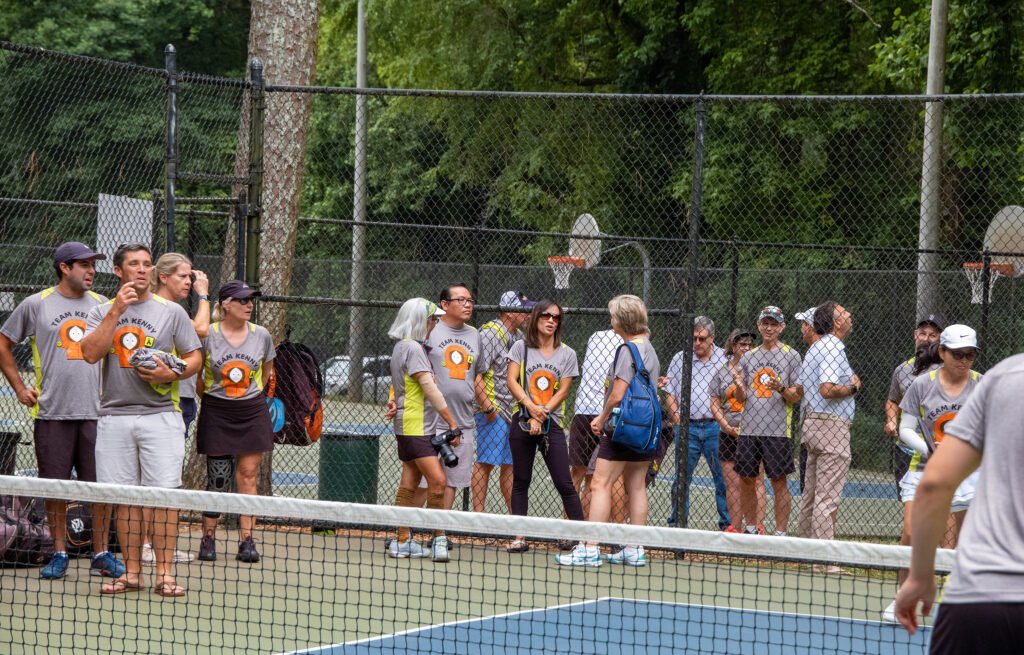
- Community and Social Aspects
Beyond its status as a sport, pickleball stands out for fostering a robust sense of community among its players. The camaraderie and social interaction that characterize pickleball contribute significantly to its widespread appeal. However, it is crucial to recognize that social engagement is not exclusive to pickleball but is a common element woven into the fabric of various sports.
The unique aspect of pickleball lies in its ability to blend competition with socialization seamlessly. The sport’s design, often played in doubles, encourages teamwork and communication on the court. Players find themselves not only engaged in a challenging athletic activity but also forming meaningful connections with their fellow competitors. Post-match rituals, such as friendly banter and shared laughter, become integral components of the pickleball experience, transcending the boundaries of a conventional sport.
While the sense of community is undeniably strong in pickleball, it is essential to avoid pigeonholing it as a hobby merely because of its social dimension. Many traditional sports also thrive on the camaraderie among participants, whether it’s celebrating victories together or supporting one another during challenging moments. The social fabric of pickleball enhances the overall experience, making it more than just a physical endeavor; it becomes a platform for building lasting friendships.
While pickleball’s community-centric nature contributes to its allure, it is not a defining factor that relegates it to hobbies. Instead, it enriches the sport, providing players with not only a challenging athletic pursuit but also a social environment where connections are forged, echoing the broader trend of sports as a conduit for both physical activity and human interaction.
Pickleball, often cherished for its recreational appeal and community-building aspects, unequivocally earns the designation of a sport due to its distinctive features. The structured rules that govern pickleball gameplay provide a framework for fair competition, emphasizing the sport’s organized nature. Competitive tournaments, spanning local to international levels, stand as a testament to pickleball’s elevation beyond mere leisure. Players vie for success, showcasing their skills and contributing to the vibrant competitive landscape.
The emphasis on skill development further solidifies pickleball’s sporting credentials. Engaging in deliberate practice to refine techniques, agility, and strategic thinking is a hallmark of sports training, and pickleball aligns with this pursuit of excellence. Additionally, the existence of organized leagues and governing bodies, exemplified by entities like the USA Pickleball Association (USAPA), establishes a formal structure that distinguishes pickleball from casual hobbies.
In transcending the label of a hobby, pickleball has gained recognition and legitimacy within the organized sports realm. It embodies the fusion of recreation and competition, offering a holistic experience that attracts participants of various ages and skill levels. Pickleball’s journey from a leisure activity to a recognized sport underscores its significance in the vibrant tapestry of organized sports.

